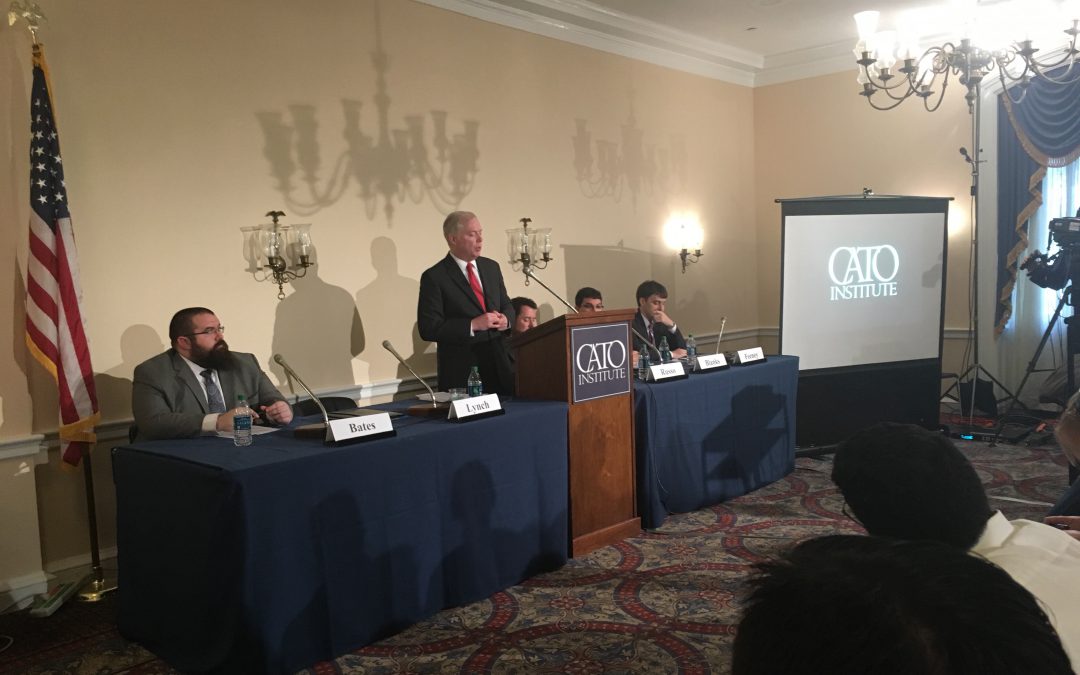WASHINGTON – The libertarian-leaning Cato Institute typically promotes limited government, but Cato said Wednesday federal agencies have an important role to play in addressing police misconduct.
Researchers and analysts from the Cato Institute’s project on criminal justice, and its offshoot PoliceMisconduct.net, briefed congressional staffers on the plans to offer policy changes at the federal level regarding policing.
Tim Lynch, director of the think tank project, said while most problems with policing happen on a local or state level, there are issues that can be mitigated at the federal level.
Regarding recent police-related shootings of black men in North Carolina and Oklahoma, the criminal justice scholars discussed pretextual traffic stops, the militarization of some police departments, and use of police officer body cameras.
Financial grants for body cameras, which can be very expensive, are determined by the Department of Justice. There is evidence that body cameras significantly reduce the number of use of force incidents in police departments, as well as leading to more indictments of officers accused of misconduct, Cato analyst Matthew Feeney said.
Feeney said Cato generally supported the use of body cameras, but was concerned with the balance between privacy and accountability. He said the institute, which promotes individual liberty, believes body camera videos shot inside private homes should not be available to the public.
“There is an important role here for the federal government,” Feeney said, “to ensure (body camera grants from Justice) go to departments that have demonstrated a commitment to transparency and accountability while also maintaining privacy.”
While most cases of police misconduct are seen in state and local departments, Lynch said there was also a need for increased accountability with federal officers.
Dozens of federal agencies, including the FBI and ATF, have policing power. Lynch said the federal government claims 150,000 sworn officers as compared with 800,000 in the 18,000 police departments across the country.
He cited a lawsuit against border patrol regarding the 2010 shooting of an unarmed immigrant by a federal agent, which is set to be heard by the Supreme Court, as an example of a need for greater accountability at the federal level. Lynch also said the Defense Department should take greater care in the dispersal of militarized weaponry to local police departments.
Peter Russo, Cato’s director of congressional affairs, said the think tank does not believe any “war on cops” is under way in the U.S. He said violence against law enforcement was steadily declining.
The libertarian scholars acknowledged that officers were often painted in broad brushstrokes, and that many police departments have taken steps to increase accountability and improve community relationships.
“When a police department is performing well, when it is maintaining high standards of professionalism… that’s not considered news,” Lynch said. “It doesn’t get as much in the way of media attention… but at the same time we have to face the reality that many departments are set with serious problems.”
The International Association of Chiefs of Police said it did not have a spokesman available for comment, and the Fraternal Order of Police did not return a request for comment.


